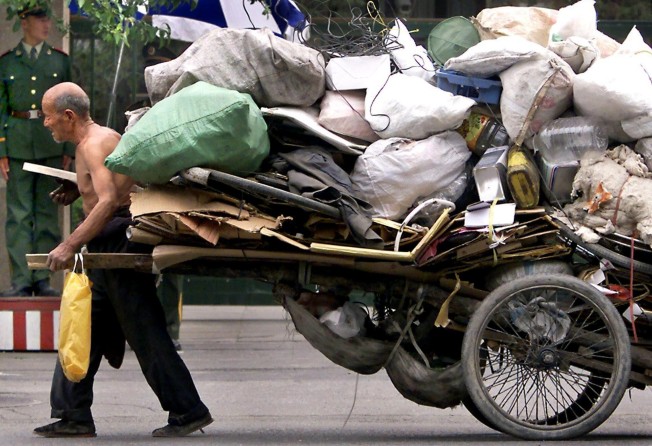China’s path to common prosperity will be a road littered with bitter complaints, fierce disputes
- An article published at the weekend was an excerpt of a speech Xi Jinping made in August at a meeting of the Central Committee for Financial and Economic Affairs
- President Xi’s rhetoric on common prosperity, which calls for the people to share in the opportunity to be wealthy, has surged this year

President Xi Jinping has shed light on his plan to make everyone in China well-off. Last week, Xi showed how common prosperity is an integral part of his long-term vision and he has set two reasonable, and achievable goals, to match China’s national rejuvenation road map.
The first yardstick in 2035 will see essential public services made equal for everyone, while by 2050 income gaps will be narrowed to a reasonable range.
Unlike under former leader Mao Zedong, who tried to equalise wealth distribution in a violent manner, Xi is seemingly not in a hurry and will be pragmatic, adopting a step-by-step approach.
The vision is also pitched as a lesson learned from the West’s failures in order to prove the value and even superiority of China’s political economy system.
Without naming the United States, Xi said inequality has led to the “collapse of the middle class, social divisions, political polarisation and widespread populism”. As such, China’s modernisation must be different.
But a specific policy framework is still absent, and for now, China is still running an economic model that has made the country one of the most unequal economies in the world.
If history and experiences in other countries can offer any reference, the difficult part is not to have a vision of equality. The real challenge is to find the right balance between growth and fairness.
It is understandable for Beijing to blame capitalism for wealth gaps, as in the case of the US, and it should be noted that the world’s relatively rich and equal societies, including those in Scandinavia as well as China‘s neighbours such as Japan and South Korea, are capitalists as well.
For China, one big obstacle in creating an equal society is that a centralised bureaucratic system has grabbed and consumed too many resources.
Many small businesses are, for example, struggling to deal with power rationing while local governments waste electricity on decorations so that their city’s can look nice.
China faces another daunting job in driving common prosperity as the country’s growth is slowing. When China could previously double the size of its economy every five or six years, it was easy to keep everyone happy.
But the job of sharing can be more difficult and it may now take the 15 years between 2021 and 2035, meaning the road to common prosperity will be littered with bitter complaints and fierce disputes.